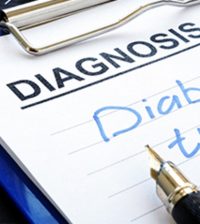- More Data Suggests ‘Ultraprocessed’ Foods Can Shorten Your Life
- Colon Cancer Cases Rising Sharply Among Children, Teens
- Eating Disorders Common in People With Type 1 Diabetes
- Can Zinc Really Shorten a Cold?
- Neuropathy Nerve Damage Often Goes Undiagnosed
- Tobacco Plus Weed in Pregnancy Could Be Lethal Combo for Baby
- Spinal Cord ‘Wraparound’ Device Could Help Treat Paralysis
- How Long Does Marijuana THC Linger in Breast Milk?
- Stomach-Zapping Procedure Lowers Appetite to Help With Weight Loss
- Dogs Brought to U.S. Must Be Microchipped, Older Than 6 Months: CDC
Does Self-Esteem Affect Seniors’ Health?


High levels of self-esteem might mean better health for seniors, according to a new study.
It included 147 people aged 60 and older who were followed for four years. Every two years, they were checked for levels of the stress hormone cortisol, symptoms of depression and degree of self-esteem. Self-esteem was measured by responses to questions such as whether a person felt worthless.
The researchers also looked at personal and health factors, such as whether a person was married or single, their economic status and death risk.
The study found that maintaining or improving self-esteem could help prevent health problems typically associated with aging, according to the researchers at Concordia University in Montreal.
When people’s self-esteem decreased, they had an increase in cortisol levels, and vice versa. The link between self-esteem and cortisol levels was especially strong in people with a history of stress or depression.
The findings were published recently in the journal Psychoneuroendocrinology.
“Because self-esteem is associated with psychological well-being and physical health, raising self-esteem would be an ideal way to help prevent health problems later in life,” study co-leader Sarah Liu said in a university news release.
“Improving self-esteem provides real health benefits in seniors. The ultimate solution may be to prevent self-esteem from declining,” she added.
This study looked at cortisol levels but future research could examine how self-esteem affects the immune system, Liu said.
Although the study found an inverse association between seniors’ self-esteem and their cortisol levels, it did not establish a cause-and-effect relationship.
More information
The U.S. Substance Abuse and Mental Health Services Administration offers a guide to self-esteem.
Source: HealthDay
Copyright © 2024 HealthDay. All rights reserved.










